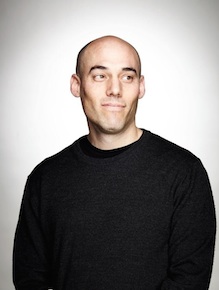By Kristy Ju
Joshua Oppenheimer, Phi Beta Kappa member and documentary filmmaker, earned a MacArthur fellowship in 2014.
His most recent film, The Look of Silence (2014) follows one family’s journey to find the truth of their son’s murder amidst the Indonesian genocide. The perpetrators of the horrific violence are still in power, shrouding a spell of silence and terror for survivors. Oppenheimer sheds light on the massacres of the military dictatorship that overthrew the Indonesian Communist Party in 1965.
“[He creates] an opportunity for broad accountability and eventual healing in a community that has been grieving for nearly half a century and prompting new ways of thinking about impunity, complicity, and contrition in the context of state-sponsored violence,” according to the MacArthur Foundation website.
“I try and use the camera to explore how people want to be seen and how they see themselves,” Oppenheimer says.
“Whenever you film anybody, they start performing and in that sense, in filming you, I can have this opportunity to see how you want to be seen. And from that, we can infer how you really see yourself – that’s what I explore in my filmmaking.”
His work has earned him a prestigious MacArthur Fellowship, which awards “talented individuals who have shown extraordinary originality and dedication in their creative pursuits and a marked capacity for self-direction.”
The stipend for the Fellowship is set at $625,000, paid in quarterly installments over five years, with a “no strings attached policy.” This policy means that fellows do not have to provide reports and can determine how their time and financial resources are spent on their own.
Oppenheimer’s The Look of Silence was presented at the Telluride Film Festival, the Toronto International Film Festival, the New York Festival, and won the Grand Jury Prize of the 71st Venice International Film Festival.
Despite these prestigious recognitions, the MacArthur Fellowship ranks as one of his proudest accomplishments.
“Receiving the MacArthur Fellowship towers above any other recognition that I’ve ever had,” Oppenheimer says.
“I think what’s wonderful about receiving a MacArthur Fellowship is it creates the conditions now for me to be just as probing and exploring, and wild and innovative in my next steps, in my next body of work.”
Oppenheimer graduated summa cum laude and earned his B.A. in filmmaking from Harvard University in 1997. He earned his Ph.D. from Central St. Martins College of Arts and Design, University of the Arts London in 2005, while studying on a Marshall Scholarship.
His earlier works include The Entire History of the Louisiana Purchase (1998) and These Places We’ve Learned to Call Home (1996), and the Globalization Tapes (2003).
While interviewing low-wage plantation workers in Sumatra, Indonesia, for the Globalization Tapes, he began to learn about the national political violence that occurred from 1965-1966. Oppenheimer then released The Act of Killing (2012), a reflection of Indonesia’s state-sponsored genocide of civilians.
“The behind-the-camera recollections of events, casual interviews, and deliberate stagings culminate in a disturbing collage of theater and remembrance through the eyes of the executioners who did not hide their crimes decades ago and publically boast about them now, offering an unusually intimate view of the psychology and social networks of living mass murderers.”
Through his filmmaking that artfully highlights the social, psychological, and emotional depth of controversial subjects, Oppenheimer embodies Phi Beta Kappa’s ideals of “personal freedom, scientific inquiry, liberty of conscience, and creative endeavor.”
Kristy Ju is a senior at University of Mary Washington majoring in English and minoring in linguistics. She became a member of Phi Beta Kappa in her junior year. University of Mary Washington is home to the Kappa of Virginia Chapter of Phi Beta Kappa.




